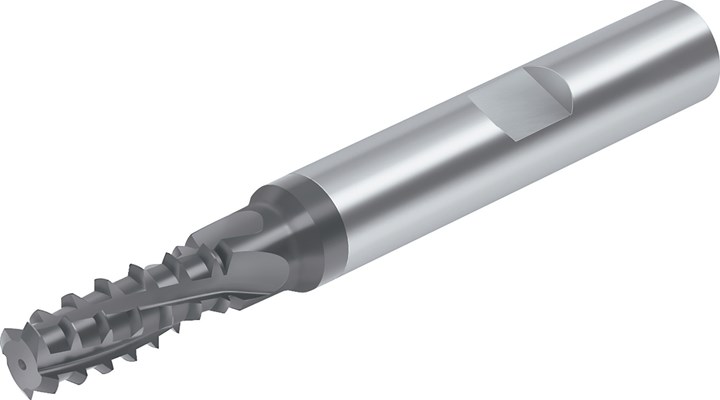Multi-Row Thread Mill Delivers Heightened Mold Machining Productivity, Accuracy
Walter USA solid carbide thread mills provide users with a high level of process reliability, easy handling and a low cost per thread.
Walter USA’s solid carbide TC620 Supreme universal thread milling cutter features internal coolant and a multi-row design that is said to deliver greater productivity, permit less vibration, reduce cutting pressure and provide excellent dimensional accuracy.
The TC620 Supreme thread milling cutters utilize patent-pending Walter DeVibe technology with an anti-vibration land to effectively suppress vibrations and enable higher cutting parameters, while contributing to other advantages like a high level of process reliability and easy handling due to infrequent radius correction. A low cost per thread enables fast machining time and longer tool life. DeVibe is said to significantly improves the surface quality, especially with fine threads, regardless of clamping conditions, varying cutting values or milling strategy.
The multi-row design thread mills are available in UNC, UNF, M and MF threadforms. Specifically: UNC8-UNC 7/8, UNF10-UNF ¾, M4-M20 and MF4-MF20 with DeVibe offerings starting at 5/16 and 8 mm in each group. These new solid carbide thread milling cutters employ high-performance WB10TJ grade with a specially blended AlTiN coating, enabling maximum performance in many different materials, even under unfavorable conditions, aided by internal coolant that provides reliable chip removal even at high feeds per tooth.
Related Content
-
Machining Center Spindles: What You Need to Know
Why and how to research spindle technology before purchasing a machining center.
-
6 Ways to Optimize High-Feed Milling
High-feed milling can significantly outweigh potential reliability challenges. Consider these six strategies in order to make high-feed milling successful for your business.
-
The Ins and Outs of Hot Runner Temperature Control
A training checklist that explains the why and how of proper hot runner temperature control and system management.







.png;maxWidth=300;quality=90)





